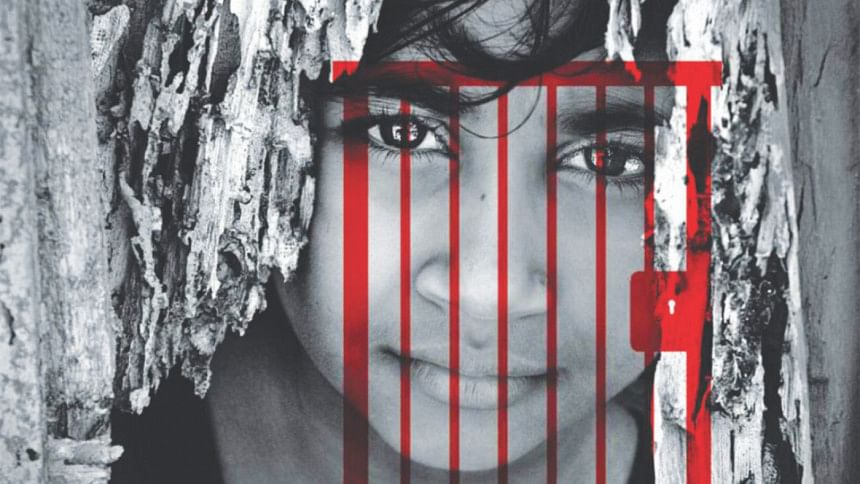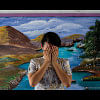Downplaying child sexual abuse

On October 21, one of the most depressing new reports I read about the rape of a seven-year-old girl by her 45-year-old neighbour in Jessore. The less than one hundred word report was published in an inner page of the daily. And not all the newspapers even reported the incident. Not surprisingly, the news escaped the eyes of many readers. I asked some of my friends whether they had read the report. Their answer was in the negative.
Later that day, while talking to some of my journalist friends, I brought up the issue again. We talked about the news treatment of incidents of child abuse in newspapers and how such news is often underplayed, being relegated to less important pages. One of them argued that this news should have been published on the front page of the newspaper while another thought other important national issues deserved more attention.
Perhaps it wasn't the right time to talk about rape, because for residents of Dhaka, the most important news of the day was the heavy rainfall in the whole country, the waterlogging and unplanned urbanisation of Dhaka, etc. But I could not help thinking about the horror the child had gone through and the trauma she would suffer, possibly for the rest of her life. And while writing this article, the thought that crossed my mind was maybe right at that moment, somewhere in some remote corner of the country, there were children being sexually abused or raped. The thought might seem negative, but given the increase in the number of child rape incidents of late, I'll admit, such thoughts often come to my mind. We might find reports of a few of the incidents in the next day's newspapers, but many of the cases will remain unreported.
If we take a look at the reports and studies done by organisations that work on child rights issues, we may get a glimpse of the horrific crimes committed against children in the country. According to Bangladesh Shishu Adhikar Forum, a total of 494 children were raped in the eight months from January till August this year—among them 58 were gang-raped. According to their statistics, 37 disabled children were raped during this time, while 46 were victims of attempted rape. And as Manusher Jonno Foundation (MJF) has reported, at least 15 children died as a result of rape in the nine months since January to September this year. A The Daily Star study done in 2015 found that 82 percent of the rape victims in the country were under the age of 20.
Children are sexually harassed and raped by their neighbours and close relatives, schoolchildren are raped by their teachers and school staff (A study by The Daily Star found that 52 percent of rape victims are schoolchildren), domestic workers have been raped by their employers—a sickening rape culture seems to have engulfed the whole society. The situation is so horrifying that even babies are not spared. According to a study by Brac, around 1.7 children were raped on an average every day in Bangladesh last year.
Let's look at some recent newspaper reports. On October 9 this year, a 12-year-old girl was gang-raped on her way home after she fled her employers' house where she had been tortured regularly. A seven-year-old girl was raped by her neighbour in Savar's Begunbari area on September 26. A three-year-and-nine-month old girl was raped and murdered by a neighbour at the end of July. A seven-year-old girl was found raped and killed in Dhaka's Jatrabari on October 1. The list goes on. And yet, that would be only a fraction of the total incidents, since a large number of cases remain unreported.
Lawyers and child rights activists blame the delay in the trial of the accused as the main reason for the alarming rise in crimes of child abuse. Establishment of a separate child rights commission to deal with the issues relating to child abuse and sexual harassment and holding trial of the cases under a special tribunal, are some of the suggestions they have made.
In addition, the annulment of the special provision in the Child Marriage Restraint Act 2017 is necessary. Under this provision a girl can be married off even if she is not 18 under "special circumstances", which allows minors to be sexually abused. Also, in the Women and Children Repression Prevention Act, 2000 a child is defined as anyone under 16 years whereas according to our Children's Act, 2013 it is 18 years. This contradiction must be removed. Tania Haque, Associate Professor, Department of Women and Gender Studies, University of Dhaka, points out that the above mentioned contradiction makes cases of abuse and sexual harassment of children vulnerable to manipulation, making it difficult to obtain effective results.
While it is the responsibility of the government and the judiciary to improve legal protection for children, we must think seriously about what we can do at the social level to prevent the surge in sexual violence against children. And as a first step, we should look at ourselves. What role are we as adults playing to protect children in our society? Did we, at any point in our lives, protest when we noticed any kind of abuse inflicted on children—maybe on the street or on a public bus or even at home? If the answer is no, then we should first change ourselves and stop being silent spectators.
Although it is true that some cases of child rape have received media attention, especially after outcry on social media, sadly, these do not make for even a fraction of the reported cases of rapes of children. When crimes against children are all pervasive in our society, our efforts to fight these crimes should be persistent and well thought-out. Let us stop trivialising incidents of child rape because it happens all too often. Instead, let us wage a social movement against this rape culture.
It goes without saying that news of sexual violence and rape of women and children should always get a prominent place in national newspapers and the electronic media. Not only will this stop downplaying the magnitude of such heinous crimes, but will go a long way in our collective fight against rape culture.
Naznin Tithi is a member of the editorial team at The Daily Star.










Comments